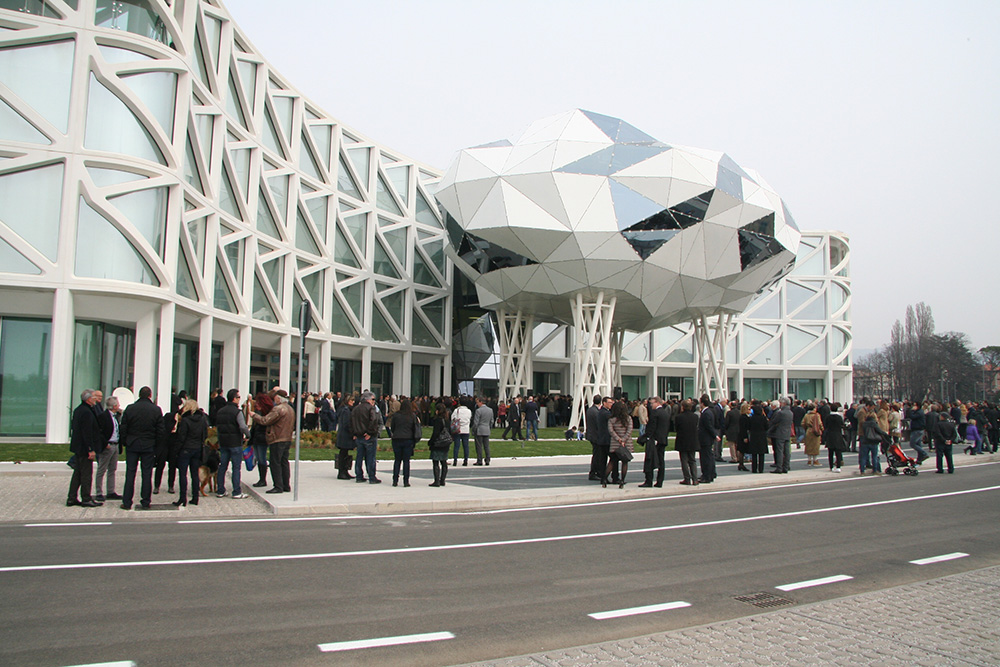
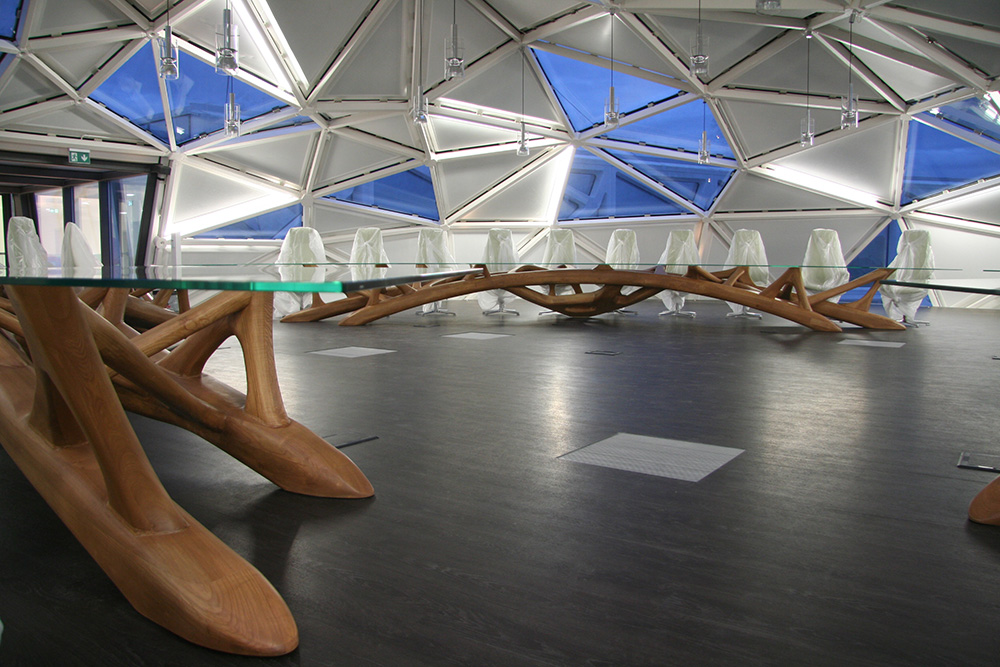
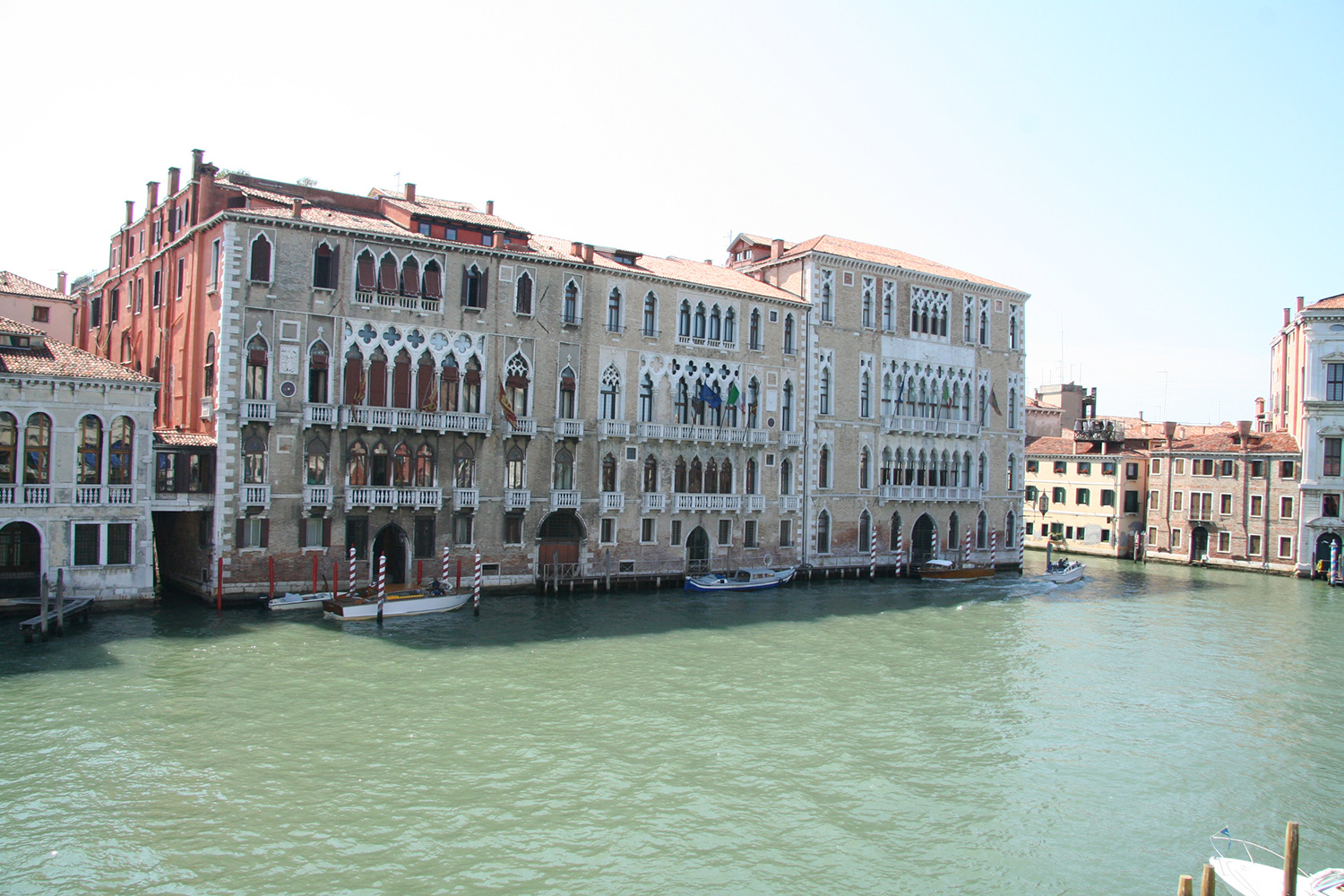
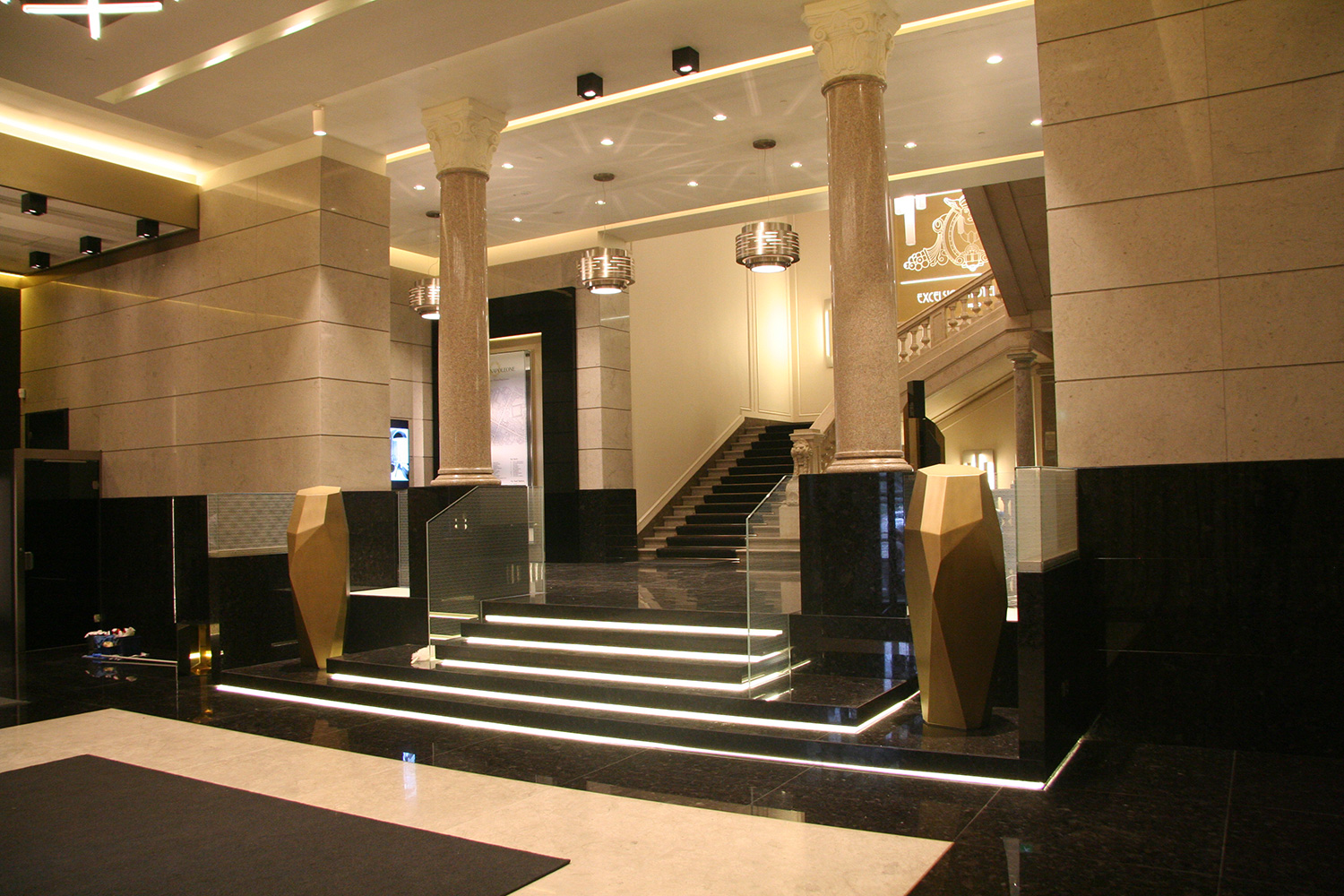
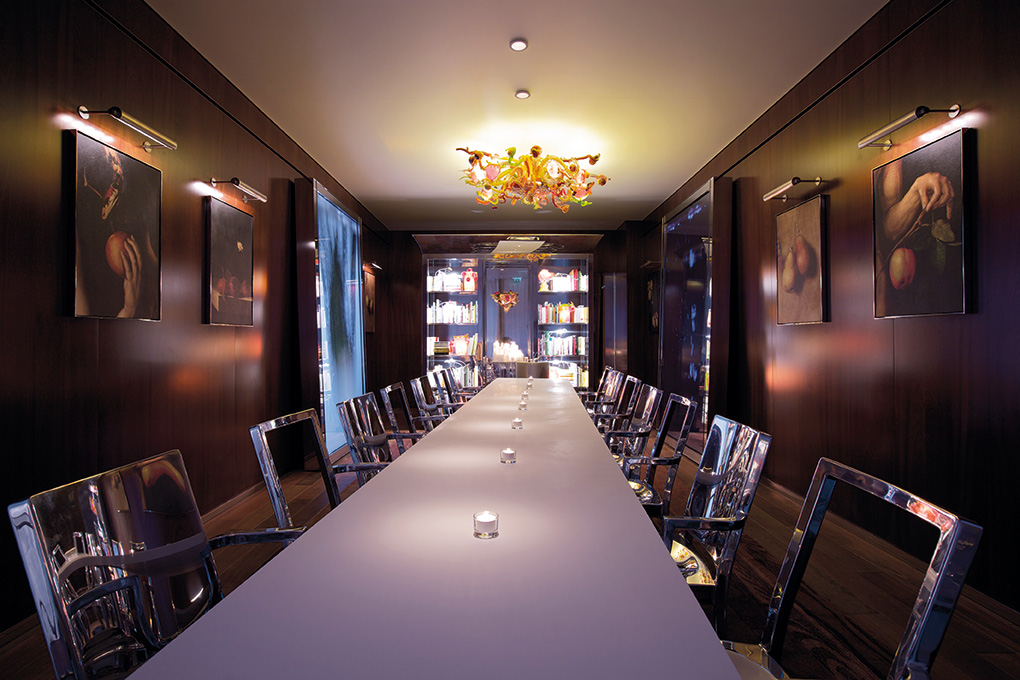
Philippe Stark“Subversive, ethical, ecological, political, fun: this is how I see my duty as a creator.” Philippe Starck.
Despite his thousands of projects - completed or in the making - his global fame and his tireless protean inventiveness, never forget the essential. Philippe Starck has a mission and a vision: creation, whatever shape it takes, must make life better for the largest number of people possible. Starck believes this highly poetic, political, rebellious, benevolent, pragmatic and subversive duty must be borne by all and he resumes it with the humour that has accompanied his approach since the earliest days: “No one is forced to be a genius, but everyone has to take part.”
His anticipatory concern for environmental implications, his profound comprehension of contemporary mutations, his enthusiasm for imagining new lifestyles, his determination to change the world, his devotion to a positive reduction, his love of ideas, his desire to defend the intelligence of usefulness - and the usefulness of intelligence - have accompanied one iconic creation after the other… From everyday products such as furniture and lemon squeezers, to revolutionary mega-yachts, micro wind turbines, electric cars, and hotels that aspire to be wondrous, stimulating and intensely vibrant places, Starck never ceases to push the boundaries and criteria of contemporary design. His technological miracles are vectors of democratic ecology, focused on action and a respect for the future of both humans and nature. Predicting the phenomena of convergence and dematerialisation, Philippe Starck has always devised objects that demand the most from the least. The solutions provided by his dreams are so vital, so essential that he was the first Frenchman to be invited to the legendary TED (Technology, Entertainment & Design) conferences, talks that bring together such illustrious speakers as Bill Clinton and Richard Branson.
Inventor, creator, architect, designer, artistic director...
Philippe Starck is all of the above, but above all he is a man of honesty, in the purest tradition of the Renaissance artists.
Filippo CantoiaDopo gli studi di architettura al Politecnico di Milano [Italia] e alla Facultad de Arquitectura di Valencia [Spagna] Filippo Cantoia, questo italiano sempre assetato di conoscenza e di chi ha la fede nella perfezione finale del dettaglio, lavora su progetti. Decide di stabilirsi a Parigi nel 2002 e si perfeziona presso il Museo del Louvre di museografia e scenografia. Parallelamente si occupa di ristrutturazione di un villaggio turistico in Italia [originariamente progettato da Gae Aulenti] così come la progettazione di gioielli per clientela esclusiva. Nel 2005 il suo percorso lo porta da Philippe Starck con cui inizia una collaborazione lunga dieci anni. Dal 2010 si occupa di progetti di interior design in Francia, Italia, Marocco ed Est Europa, per i clienti esigenti, che chiedono il suo punto di vista per rinnovare il loro appartamento in città o di un ristorante con vista sull'oceano. Filippo ha continuato a viaggiare fe ciò gli ha permesso di affinare le sue doti e la sua visione del «art de vivre»
Vivere, lavorare, creare
After studying architecture at Politecnico di Milano [Italy] and at the Facultad de Arquitectura in Valencia [Spain] Filippo Cantoia , this Italian always thirsty for knowledge and who has faith in the ultimate perfection of detail, works on privately lead projects. He decides to settle in Paris in 2002 and trains at the Louvre Museum in museography and scenography. In parallel he works on renovating a holiday resort in Italy [originally designed by Gae Aulenti] as well as designing his own jewellery for exclusive clientele.
In 2005 his path leads him to Philippe Starck with whom he begins a ten years working partnership. From 2010 he works on interior design projects in France, Italy, Moroco, East Europe for demanding clients who ask for his point of view to renovate their apartment in town or a restaurant with ocean view. Filippo continued to travel providing him with the depth and realities with which to refine his boundaries and his vision of the «art de vivre»
Live, Work, Create
Alessio PrincicL’architetto alessio Princic è nato a Udine, Italia, si laurea in architettura presso la Facoltà di Architettura di Lubiana, Slovenia nel 1982 e a Venezia nel 1985. Nel 1983 riceve il premio Preseren per il lavoro di diploma. Nello stesso anno inizia a lavorare con il rinomato arch. Marconi di udine, e in seguito con l'architetto Valle e prosegue le collaborazioni con moltri altri architetti. Apre il suo studio a Udine nel 1990 e nel 1992 inizia il lavoro di ricerca presso la facoltà di Ljubljana, dove collabora anche come commentatore e docente. Riceve il premio Plecnik (il premio slovene più importante per l'architettura) nel 1998. Nel 2000 ottiene un diploma post-laurea presso la facoltà di architettura di Lubiana. Nel 2000 riceve il premio Oderzo. Alessio Princic continua la ua attività presso il proprio studio di architettura, come capo dello studio "PRINCIC PARTNER", Udine, Italia.
Architect Alessio Princic in born in Udine, Italy, graduates from architecture at the faculty of architecture in Lubjana, Slovenia in 1982 and in Venice, Italy in 1985. In 1983 has receives preseren prize for diploma work. In the same year he starts working with reknow architect Marconi from Udine, and later on with architect Valle and others. He starts his own studio in Udine in 1990. In 1992 he starts research work at the faculty of Lubjana, where he also cooperate sas a comentor and lecturer. He receives the Plecnik prize (the most important slovene prize for architecture) in 1998. In 2000 he gets a posgraduate degree at the faculty o architecture in Lubjana. In 2000 he receives the Oderzo prize. Alessio Princic continues his own architectural practice as the head of the Studio “PRINCIC&PARTNERS”, in Udine, Italy.
Enrico FranzoliniArchitetto, compie gli studi universitari a Firenze e Venezia dove si laurea nel 1979. La passione e le ricerche artistiche giovanili si concretizzano in numerose partecipazioni ad esposizioni collettive e personali, a partire da una presenza alla Biennale del 1972, nella sezione arti decorative. Parallelamente alla ricerca artistica si sviluppa il suo impegno nei campi dell’architettura e del disegno industriale. Il suo studio, aperto ad Udine nel 1981, affronta temi progettuali molto differenti per scala ed oggetto ma connotati da un metodo e da una coerenza stilistica riconoscibili. Numerosi sono i progetti di architettura realizzati, pubblicati e segnalati. Nell’ambito del disegno industriale ha avuto modo di collaborare negli anni con alcune delle più prestigiose aziende nel settore del mobile quali Alias, Cappellini, Foscarini, Knoll International, Moroso.
A professional architect, Enrico Franzolini completed his studies at the universities of Florence and Venice, where he graduated in 1979. His youthful practice in the visual arts led him to take part to several collective and individual exhibitions, including the 1972 Venice Biennale, in the decorative arts section. Together to his artistic production, he developed strong commitment to the fields of architecture and industrial design. His firm was founded in Udine in 1981 and it addresses design themes that vary greatly in scale and scope, but share however a recognizable method and stylistic coherence. Many of his architectural works have been built, published and were granted awards. As an industrial designer, he has collaborated over the years with many of the most prestigious manufacturers in the furniture industry, such as Alias, Cappellini, Foscarini, Knoll International, Moroso
Marco PivaExciting, fluid, functional.This is the language that distinguishes Marco Piva’s architectural creations, product design and interior design. The effort in material research and technology, the value of differentiation,the design innovation, lead the establishment of Studiodada Associates, whose production becomes one of the most representative of the period of Radical Design. In the ’80s opens Studio Marco Piva, whose work ranges from large projects to architectural interior design, to industrial design. A traveller and a designer, an innovator who is educated in rational approaches, Marco Piva studies and creates design solutions which are pervaded by stylistic freedom and compositional sobriety.
Mauro LippariniMauro Lipparini's singular influence has been recognized and celebrated around the globe. In 2011, he was a winner of the Good Design® Global Awards, the world's most prestigious honor in design. He is a past champion, as well, of the Young & Design Milano and International Du Pont Award Köln international design competitions. Lipparini's extensive work in the field of industrial design includes home and office furnishings, textiles, and other products created for a host of renowned European and Japanese firms. In the realms of architecture and interior design, Lipparini has concentrated primarily on private and public housing, retail and wholesale showrooms, and exposition installations. Lipparini also provides cutting-edge corporate identity construction services including graphic design, editorial, full-scale production, and product application.
Rooted in the spare forms and clear, powerful lines that are the defining features of Italian minimalism, Lipparini's work is imbued with a spirit of joy, a buoyant sense of pleasure and possibility. Freely employing bold colors, organic textures, and imaginative visual concepts, Lipparini broadens the palette of classic minimalism, bringing the immediacy and strength of the well-respected aesthetic into an exhilarating new era.
Francesco MorenaL’Architetto Francesco Morena apre un proprio studio professionale nel 1983 a Monfalcone (GO) con il nome Studio Morena. Con l’aumentare dell’attività professionale e degli incarichi internazionali cambia denominazione diventando Morenarchitects. L’attività dello studio è rivolta prevalentemente alla realizzazione di gradi opere come il recupero e lo sviluppo delle grandi aree urbane e la progettazione urbanistica e architettonica di complessi di edifici direzionali, residenziali e commerciali. L’attività concorsuale che ha portato Morenarchitects all’acquisizione di importanti incarichi professionali come il recupero di una vasta area ex mineraria a sud di Bruxelles. Nel 2007 lo Studio ha partecipato alla Biennale di Venezia sul tema dell’Architettura e sviluppo sostenibile con l’illustrazione del progetto urbanistico della città di Tong Li (CINA) con un grande spazio espositivo alle Corderie dell’Arsenale. Nel 2008 Morenarchitects è stato incaricato di redigere il progetto per la nuova viabilità pedonale, gli spazi pubblici e il verde, della nuova città di KAUST situata a sud di Jeddah in Arabia Saudita. Nello stesso anno l’architetto Francesco Morena è intervenuto in qualità di relatore al World Future Summit tenutosi ad Abu Dhabi . In questa sede sono stati presentati numerosi lavori nel quadro della conferenza intitolata “Renewable Energy Sources in the house of the future”. Molti gli incarichi in Italia tra i quali si cita la riqualificazione dell’area industriale “Ex Italcementi” di Cividale del Friuli (Ud); in quest’area oltre la Nuova Sede della Banca Popolare di Cividale, vi sarà un Centro Congressi, un Edificio Direzionale, due Edifici Residenziali e un Centro Commerciale. Tutti i progetti sono caratterizzati da un alto profilo tecnologico e rispondono agli standard più restrittivi di prestazione energetica. Lo Studio ha collaborato inoltre ai lavori di commissione per l’Expo 2010 di Shanghai assieme all’architetto cinese Mi Qiu ed è stato invitato a formulare proposte progettuali come quella relativa all’ assetto urbanistico dell’area centrale dell’Expo 2010 e quella per un nuovo museo d’arte moderna. Morenarchitects ha ricevuto numerosi riconoscimenti e premi. Nel 2011 il progetto della Nuova Sede della Banca di Cividale ha vinto il premio come “Miglior edificio per uffici in Italia”.
Francesco Morena opened his professional studio in Monfalcone, Italy, in 1983. After a steady increase in professional activity and international assignments, he changed the name to Morena Architects (MA). Activity focuses mainly on planning and development of large urban areas and the high level design of office, residential and commercial buildings.He has acquired many important projects in Europe, Asia and the Middle East. MA consitutes a team of architects that provides professional services and a high level of creativity, innovation and experience. The design philosophy is to create international architecture while respecting and valuing local traditions. A global / local architecture mix is the spirit with which the team embraces large, international commissions. All projects are characterized by an excellent technological profile and high standards of energy efficiency: MA lends great attention to issues of energy consumption, correct use of environmental resources and respect for nature.He was awarded the prize for the best office building in Italy, for his design of the Offices of the Bank of Cividale, Friuli Venezia Giulia Region. He holds the Academic title “Cultore della materia”, as expert in Architectural Planning at the University of Venice, Italy, where he also lectures regularly. He has won numerous prizes and has published his work extensively in Italy and abroad.